Event Recap | SCUPI Class Council Successfully Held Two Sessions of Mathematics Seminar
Published on: May 28, 2025 | Views: 687
This semester, the Class Council of Sichuan University – Pittsburgh Institute (SCUPI) organized two mathematics seminars, showcasing the unique appeal of interdisciplinary collaboration and highlighting the universal nature of mathematical language. Breaking away from the traditional lecture-style format, where teachers instruct and students passively listen, these seminars adopted an innovative approach: students independently explored specialized mathematical topics and then invited interested students and teachers to engage in collaborative discussions. This method not only deepened participants’ understanding but also inspired collective academic exploration. Through open discussions, book sharing, and other engaging formats, the seminars reinforced professional knowledge, cultivated an environment of intellectual passion, and attracted over 150 participants. These events have laid the foundation for an academic exchange platform. Below is a recap of the highlights from the two mathematics seminars.
Mathematics Seminar Session 1: Linear Algebra as a Cross-Disciplinary Toolbox: Algebra, Geometry and Physics
To inspire students’ interest in mathematics and broaden intellectual horizons, the Class Council of Sichuan University – Pittsburgh Institute (SCUPI) launched the Mathematics Seminar Series, guided by Associate Professors Zheng Yang and Peng Zeng, along with Assistant Professor Kunpeng Wang. On April 12th, the Class Council successfully held the first mathematics seminar titled ” Linear Algebra as a Cross-Disciplinary Toolbox: Algebra, Geometry, and Physics” in Classroom S205, Jiang’an South Campus. Associate Professors Yang and Zeng attended the seminar.
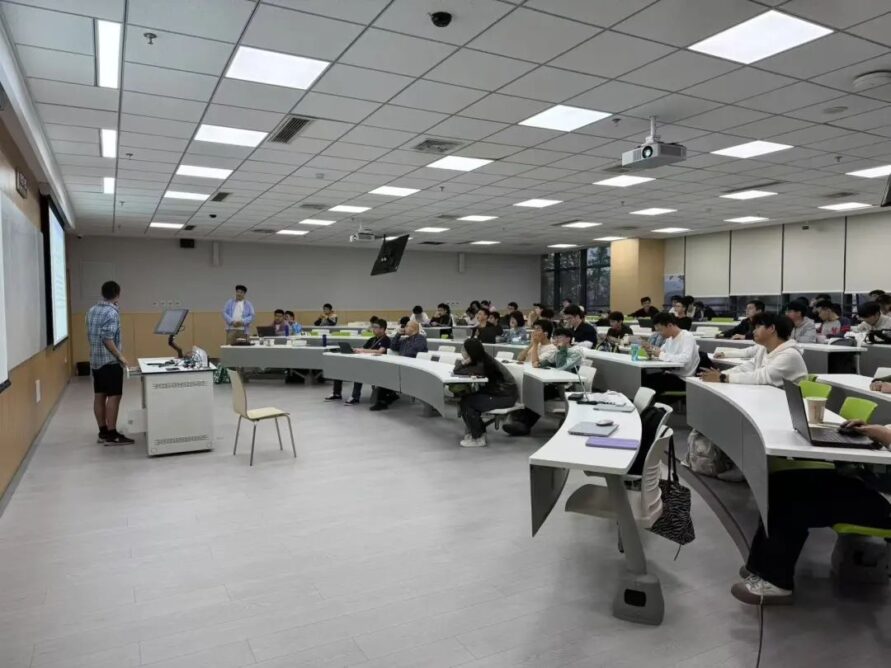
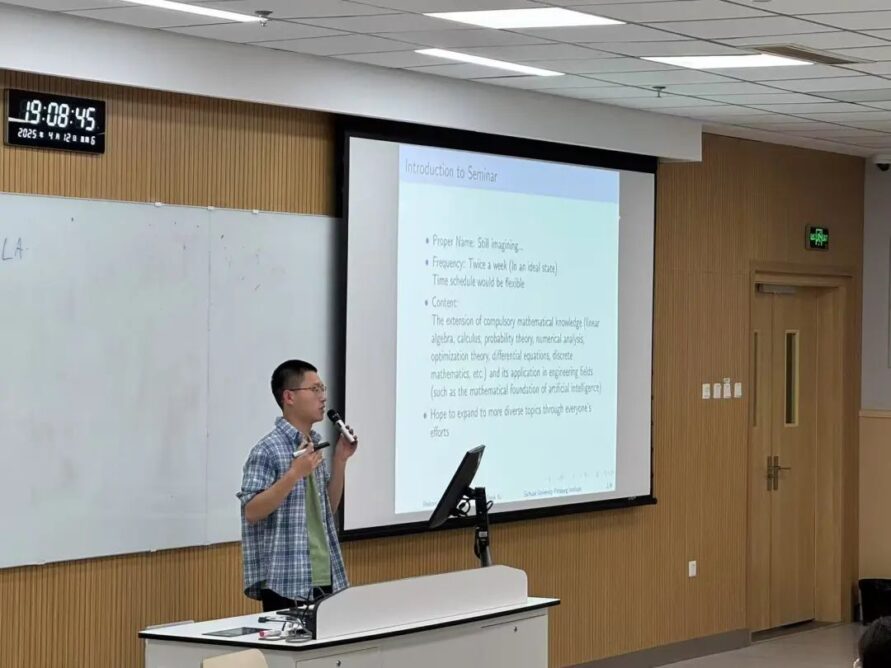
Chaojia Yu, who majored in Computer Science from the Class of 2026, hosted the seminar and introduced the goals of the Mathematics Seminar. Yuchen Wang, who majored in Industrial Engineering from the Class of 2027, began with simple questions that gradually evolved into complex explorations, guiding attendees through abstract algebra, calculations of spherical triangle areas, and modeling analyses of multi-oscillator harmonic vibration systems.
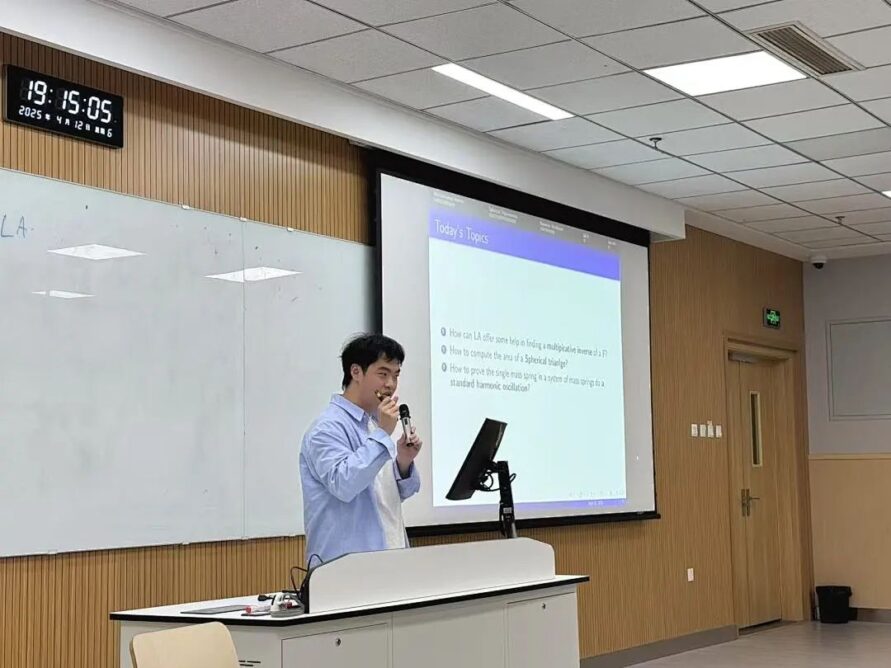
During the Q&A session, Professors Yang and Zeng shared their practical experiences with linear algebra tools. Prof. Yang remarked, “The examples were highly inspiring—perfect as introductory problems for a linear algebra course. You presented them even better than I would!” Prof. Zeng added, “I hope this series continues, evolving into a signature event for SCUPI and even Sichuan University.” Both encouraged students to extend mathematical thinking to real-world challenges.
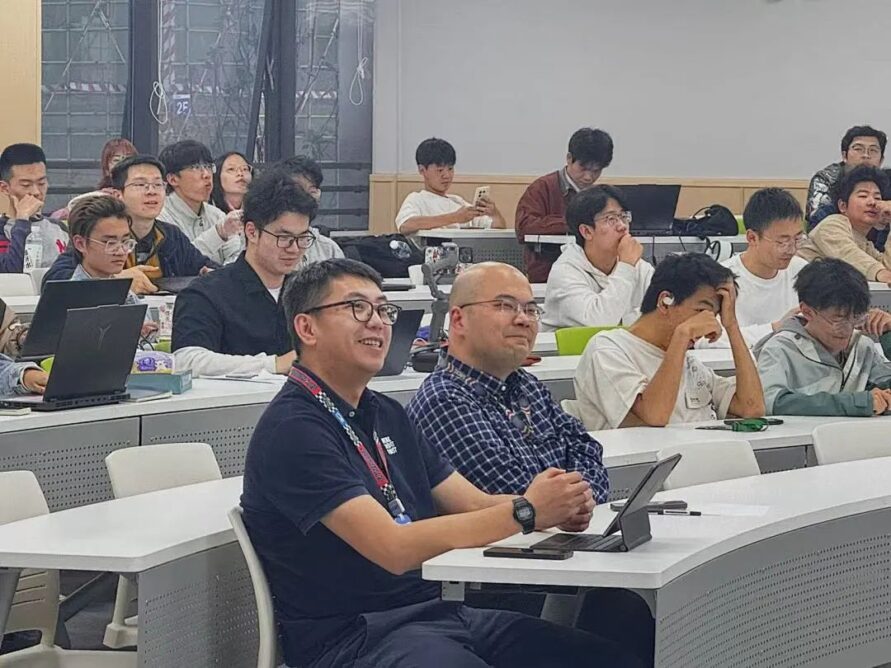
In closing, Chaojia Yu outlined plans: “To ensure the series’ sustainability, we aim to expand its scope and depth, covering diverse topics such as the history of mathematics and physics, as well as collaborative readings of classic textbooks, fostering a long-term academic exchange platform.”
The seminar transcended textbook learning, with interactive demonstrations deepening attendees’ understanding. One student noted, “The explanations demystified abstract formulas—I’d memorized equations before but never grasped their logic. Now, I can retrace mathematicians’ thought processes!” Another highlighted, “The content was foundational yet forward-looking. Next time, I’d love to explore linear algebra’s role in AI!”
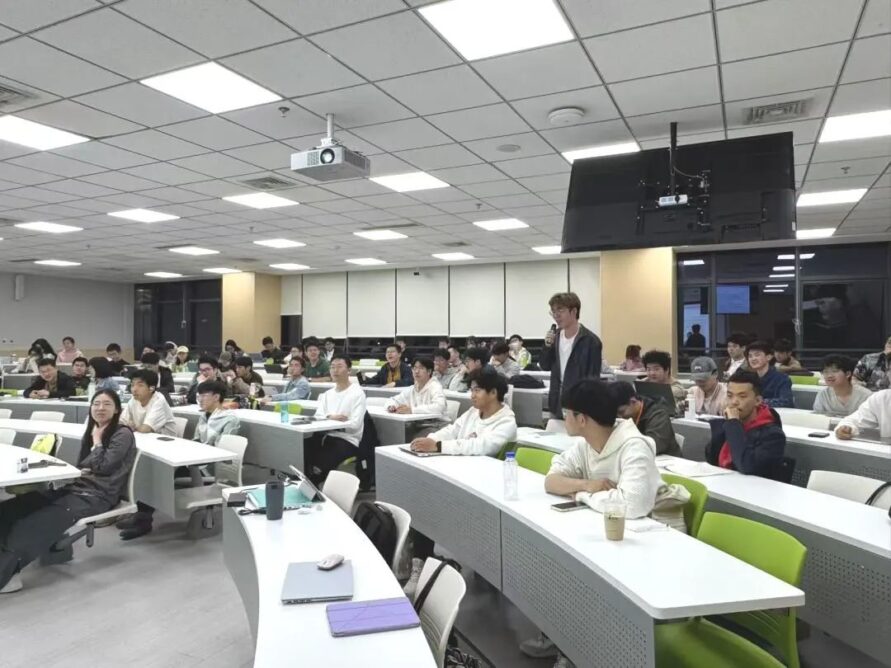
This inaugural seminar launched SCUPI’s interdisciplinary, problem-driven Mathematics Seminar Series, empowering students to sharpen their analytical skills and explore the boundless applications of mathematics.
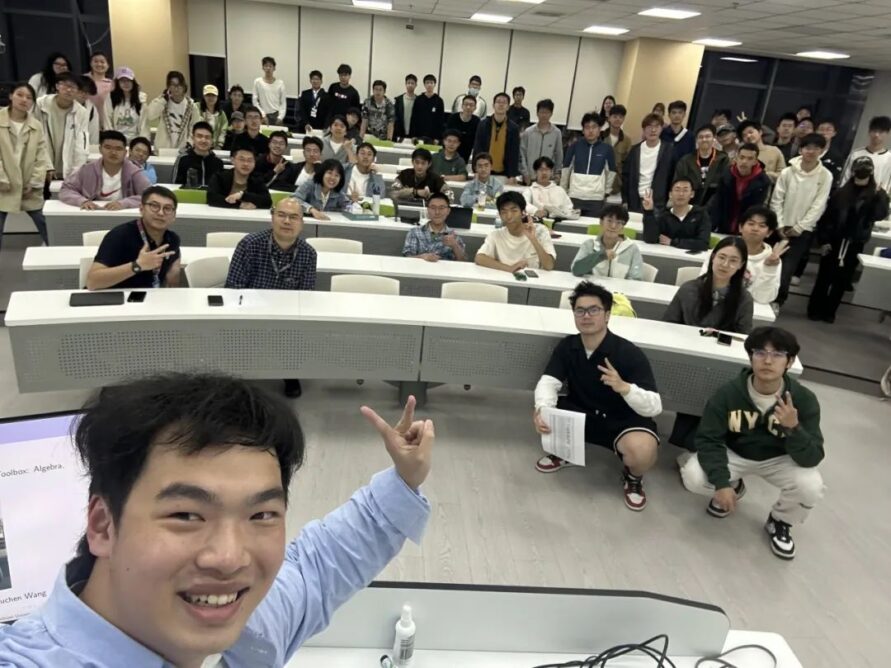
Mathematics Seminar Session 2: Equations—The Hidden Language of the Universe
Continuing its mission to foster interdisciplinary curiosity, SCUPI’s Class Council held its second session of the Mathematics Seminar, ” Equations: The Hidden Language of the Universe,” on May 9th from 7:00 to 9:00 PM in Classroom S205, Jiang’an South Campus. The event was led by Yuchen Wang, who majored in Industrial Engineering from the Class of 2027, with Chaojia Yu, who majored in Computer Science from the Class of 2026, as speaker. Special guests included Zheng Yang, Associate Professor, Mo Xu, and Yupei Xie, English Language Test Specialists.
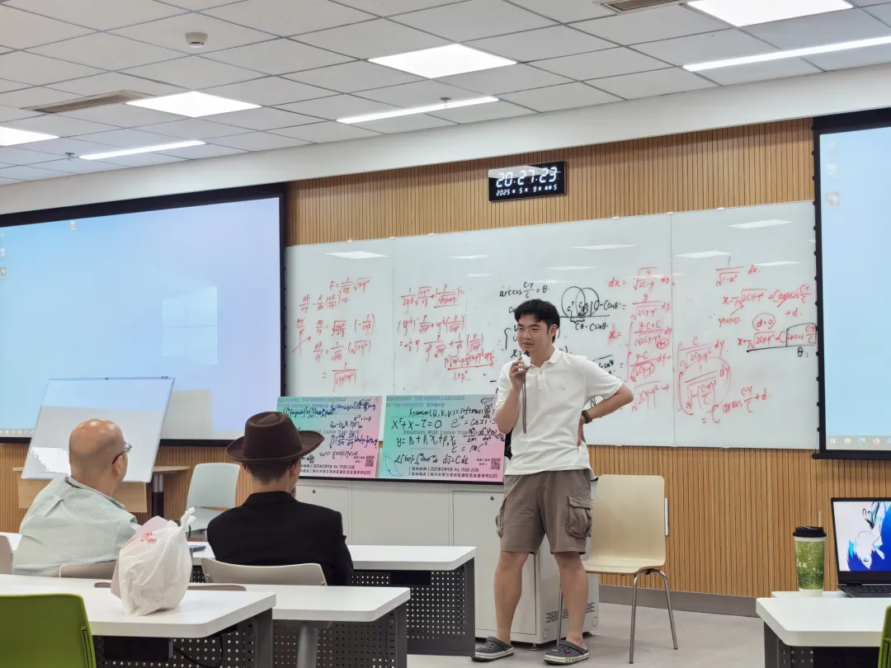
Chaojia Yu captivated the audience with his expertise and enthusiasm. Mr. Xu shared, “I was intrigued by the poster and wanted to experience this ‘remarkable’ event firsthand. While some content was beyond my expertise, Yu’s passion was truly inspiring. I hope every student finds such intellectual drive.” Ms. Xie praised the initiative: “I admire your boldness! Though the content challenged me as an English teacher, the journey from simplicity to complexity was masterfully designed.”
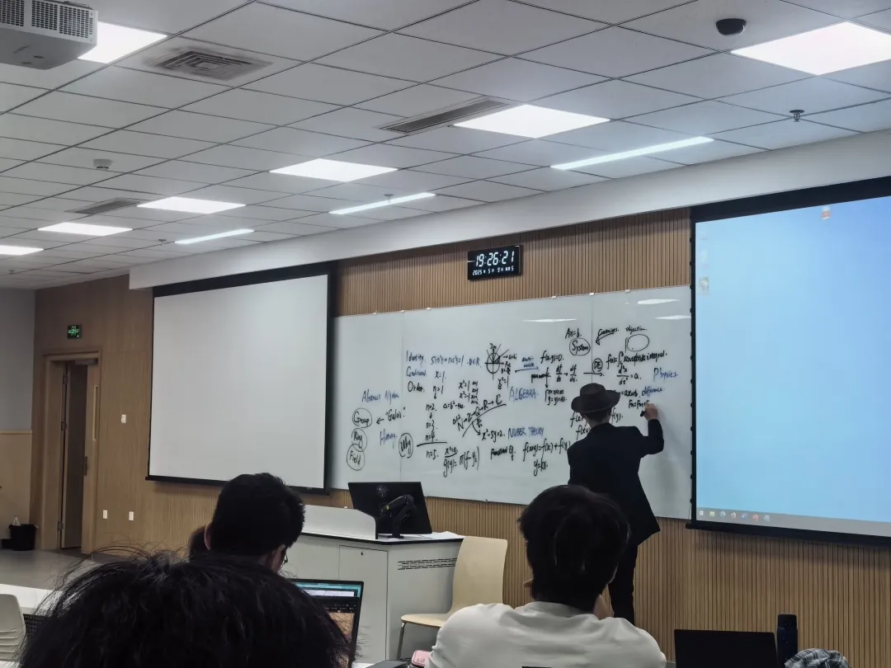
The event comprised two main segments. First, Chaojia Yu guided participants through foundational equations, integrating equation-based thinking with interconnected mathematical concepts such as set theory, calculus and derivatives, and the fusion of algebraic-geometric approaches. He demonstrated equation applications across physics and topology. Subsequently, using equations and functional analysis principles, he systematically derived the brachistochrone curve, vividly illustrating equations as the “universal language” governing natural phenomena.
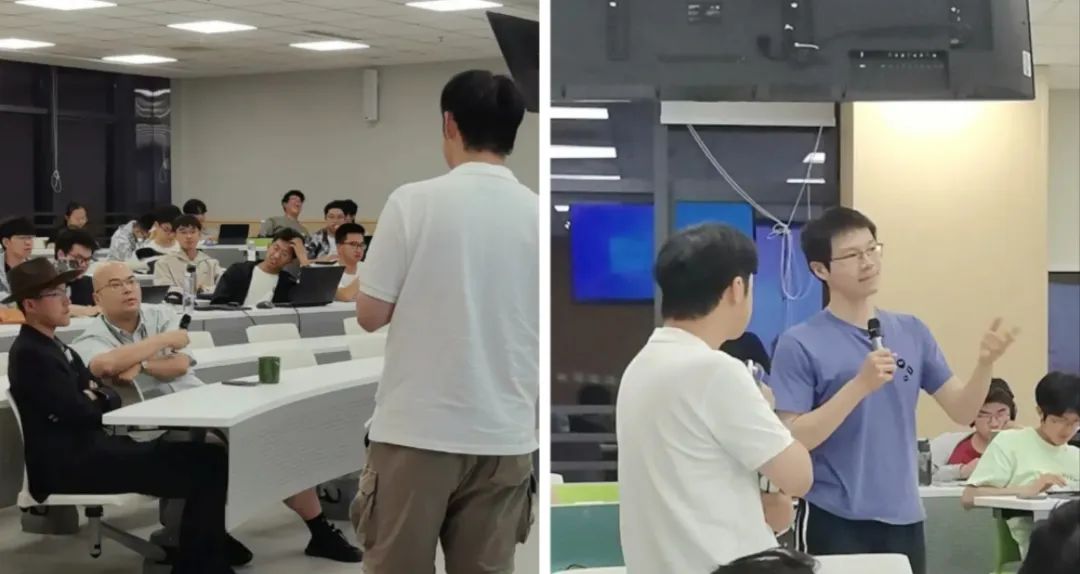
This seminar significantly expanded participants’ academic perspectives while reinforcing professional knowledge through practical derivations. Student Yuchen Wang facilitated interactive exchanges, soliciting feedback about seminar takeaways and improvement suggestions while sharing books. These interactions sparked in-depth discussions and yielded valuable proposals for future event formats. Participants commented, “The equation-focused explanations proved profoundly enlightening, offering fresh perspectives on mathematical thinking,” and others noted, “The initial segment was particularly engaging, though the latter formula derivations became overly complex – future sessions could emphasize practical applications or historical contexts of mathematical concepts.”
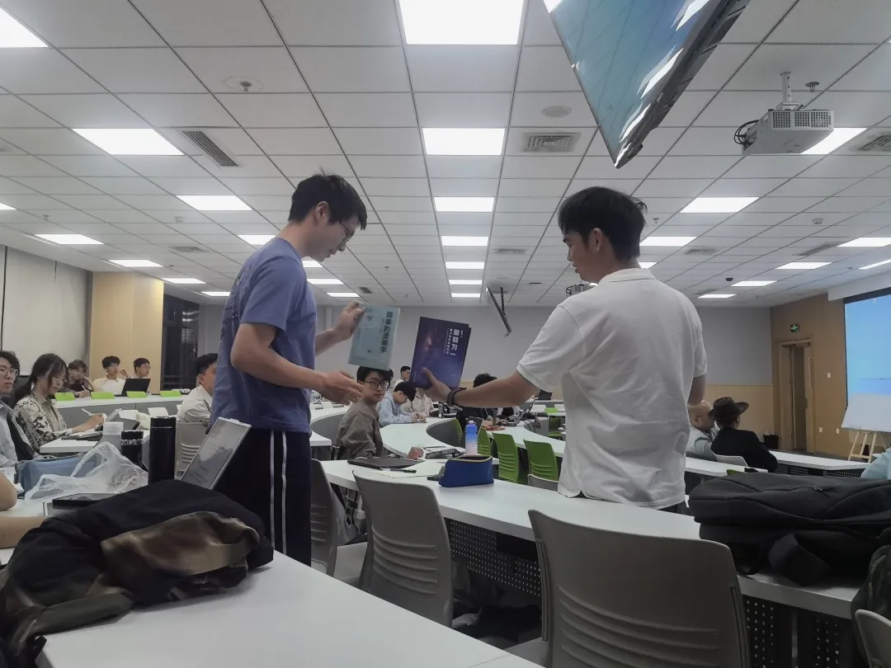
As the second session of SCUPI’s Mathematics Seminar Series, this event received widespread acclaim. This series will continue exploring interdisciplinary integration through real-world problem-solving approaches, aiming to stimulate students’ intellectual potential and broaden applied mathematical perspectives.
